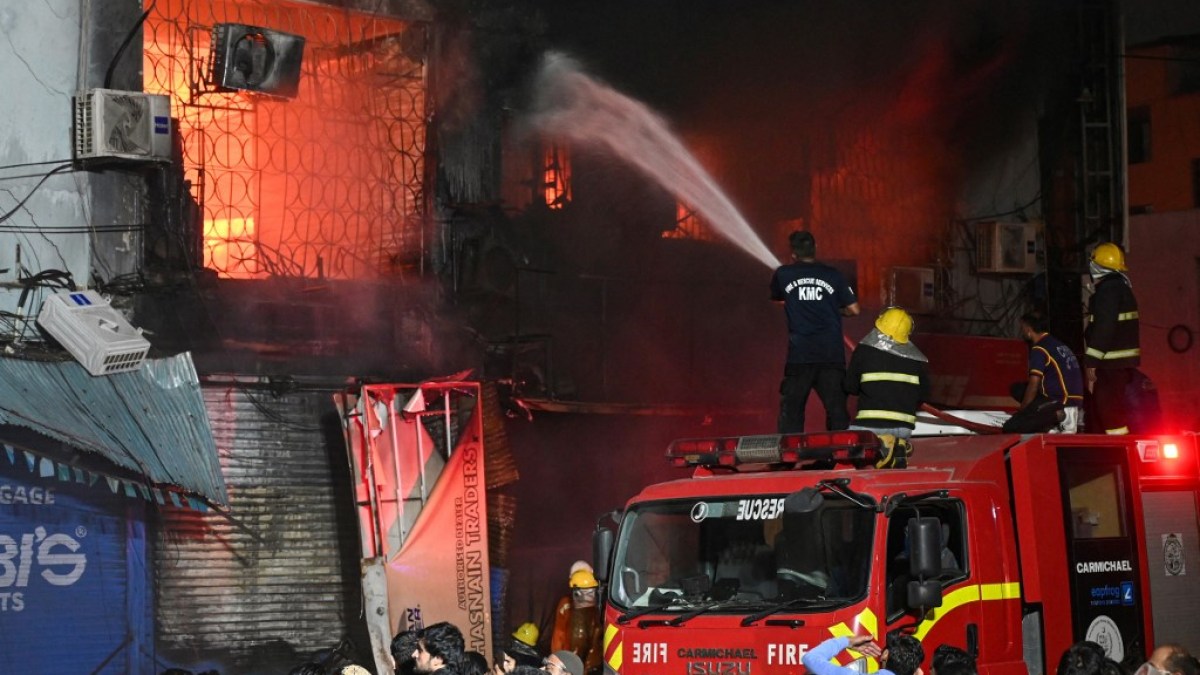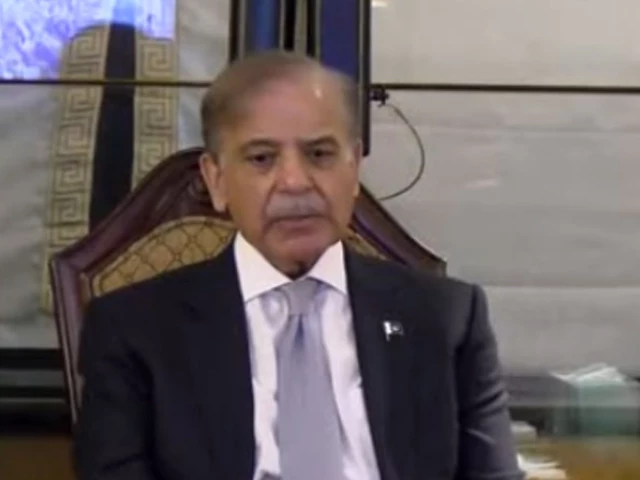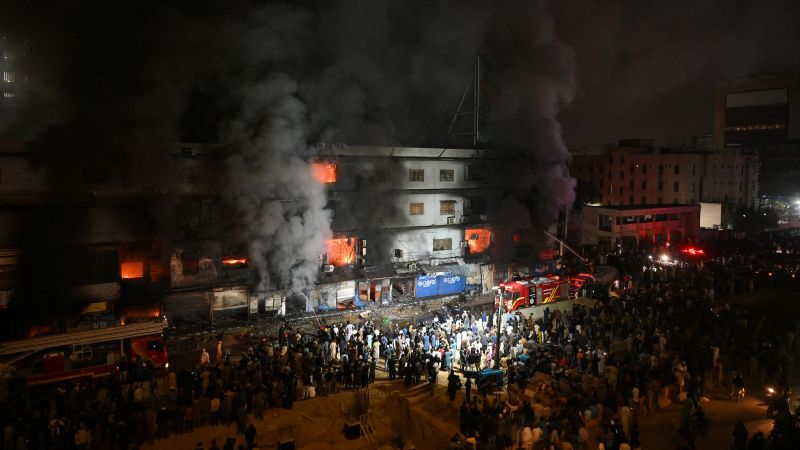Firefighters in Pakistan’s southern port city of Karachi on Sunday finally extinguished a blaze at a multistory shopping plaza after a nearly 24-hour-long effort. The fire left six people dead, including a…
Category: 1. Pakistan
-
Karachi fire tragedy: President, PM assure support to Sindh – RADIO PAKISTAN
- Karachi fire tragedy: President, PM assure support to Sindh RADIO PAKISTAN
- Six killed in Pakistan shopping mall fire BBC
- Search operation begins to locate over 50 missing people at Karachi’s Gul Plaza as fire doused after 24 hours Dawn
- More…
Continue Reading
-
TTAP demands ‘independent probe’ into Feb 8 elections, punishment for those responsible for alleged rigging under Article 6 – Dawn
- TTAP demands ‘independent probe’ into Feb 8 elections, punishment for those responsible for alleged rigging under Article 6 Dawn
- TTAP chief proposes ‘national govt’ to ensure transparent polls Geo News
- Opposition Alliance demands fair…
Continue Reading
-
TTAP demands ‘independent probe’ into Feb 8 elections, punishment for those responsible for alleged rigging under Article 6 – Dawn
- TTAP demands ‘independent probe’ into Feb 8 elections, punishment for those responsible for alleged rigging under Article 6 Dawn
- TTAP chief proposes ‘national govt’ to ensure transparent polls Geo News
- Opposition Alliance demands fair…
Continue Reading
-

At least six killed in Pakistan as fire rips through Karachi shopping mall | Construction News
Pakistani leaders offer condolences as firefighters battle a major blaze in Karachi.
Published On 18 Jan 2026
At least six people have been killed and about 20 injured when a fire tore…
Continue Reading
-
Massive fire kills 6 in Karachi, destroys shopping centre – Reuters
- Massive fire kills 6 in Karachi, destroys shopping centre Reuters
- Hours after eruption, blaze at Karachi’s Gul Plaza yet to be extinguished; Edhi says death toll has risen to 6 Dawn
- Deadly Pakistan shopping plaza fire fuelled by clothes and…
Continue Reading
-
President, PM express grief over fire incident in Karachi – RADIO PAKISTAN
- President, PM express grief over fire incident in Karachi RADIO PAKISTAN
- Hours after eruption, blaze at Karachi’s Gul Plaza yet to be extinguished; Edhi says death toll has risen to 6 Dawn
- Deadly Pakistan shopping plaza fire fuelled by clothes…
Continue Reading
-
PM expresses sorrow over fire incident in Karachi – RADIO PAKISTAN
- PM expresses sorrow over fire incident in Karachi RADIO PAKISTAN
- Gul Plaza blaze death toll rises to 5; efforts under way to put out the fire Dawn
- Deadly Pakistan shopping plaza fire fuelled by clothes and homewares Australian Broadcasting…
Continue Reading
-

PM banks on IMF package to buttress economy
ISLAMABAD:Prime Minister Shehbaz Sharif has a scheduled meeting with the…
Continue Reading
-
Pakistan, US agree to boost security, border cooperation – Dawn
- Pakistan, US agree to boost security, border cooperation Dawn
- Pakistan, US agree to enhance collaboration in security, border management Dawn
- US, Pakistani troops conclude joint training exercise ‘Inspired Gambit 2026’ in Pabbi The Economic…
Continue Reading
